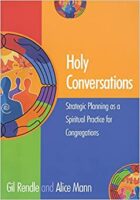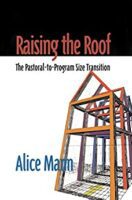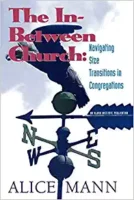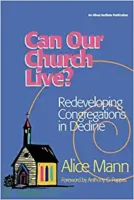
Many smaller congregations find themselves facing a choice point right now—a moment when their current ministry arrangements have broken down and alternatives must be considered. The most important advice I can offer you as a leader is this: Stop and look at all the options—no matter how far-fetched or unpalatable some of them may seem. You may still proceed with your first idea, but you will be much clearer about why you are doing it and what it will take to make that option work well.
What follows is a basic list; feel free to add other choices available to your congregation! As you refer to each option, you will find a fuller discussion and references to additional resources you might find helpful. This list could serve as the basis of a charter for a “study committee,” tasked to assess the costs and benefits of each strategy, and make a recommendation to the Board. It could also provide a roadmap for a Board retreat, or for a Sunday morning educational series to raise member awareness of the different paths smaller congregations consider. In your role as a leader, I suggest that you focus on creating a structured, thorough, and inclusive exploration, rather than on lobbying for your preferred option. A declared “season of study”—with assurance of no premature decisions while the conversation is in progress—can reduce members’ anxiety and encourage participation.
One final suggestion: It is not uncommon for leaders to abandon their orderly process in the face of emotional intensity or forceful advocacy for a particular path. If you can find a genuinely neutral and skilled facilitator to guide the conversations, the process is more likely to succeed in producing greater clarity.
Here’s an initial list for your study and consideration:
Option 1: Shift from full-time to part-time clergy.
Option 2: Merge with other congregation(s).
Option 3: Join a multi-congregation cluster.
Option 4: Secure an authorized lay pastor or locally ordained clergy.
Option 5: Grow to a size where you can afford full-time clergy.
Option 6: End well.
Alice Mann is a leading consultant, educator, and author in the field of congregational development, whose work has focused on strategic planning, breaking through size plateaus, creating new pathways for small and struggling churches, and helping congregations to discern and care for the “soul” of their local community. Mostly retired from consulting and teaching, Alice is an active member of a small, engaged urban congregation and also offers leadership for faith-based community organizing in her region. She occasionally accepts one-time conversations with former clients and other church leaders on issues close to her heart.
Books by Alice Mann




